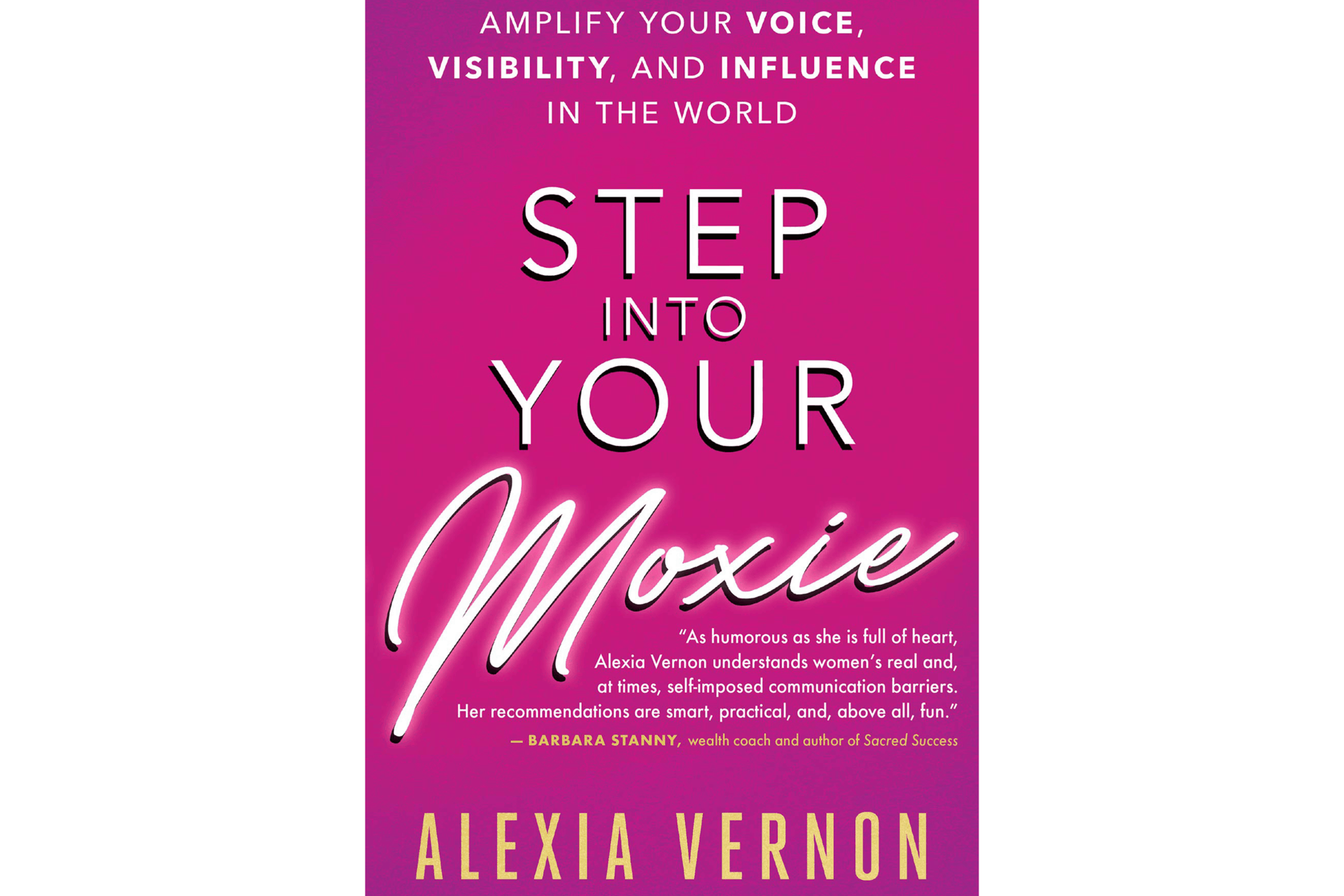
Step Into Your Moxie: A Q&A with Author Alexia Vernon
The word moxie has become synonymous with vigor, verve, pep, courage, nerve, aggressiveness, skill, and know-how—and the new book, Step into Your Moxie: Amplify Your Voice, Visibility, and Influence in the World, by speaking and leadership coach Alexia Vernon, presents a soul-stirring call to action for women to speak up for themselves and the ideas and issues that matter most to them. We hope you’ll enjoy this short interview with Alexia about the book.
What does it mean to “step into your moxie”?
Stepping into your moxie is the ability to walk into any room or onto any stage, present your ideas unapologetically, and have them move people to take action. I love the word moxie because it suggests a way of thinking, a way of feeling, and a way of behaving that activates speaking up and disrupting the status quo.
Are you somebody who was born with a lot of moxie?
Oh. Heck. No. During the first quarter of my life, I experienced an on-again-off-again relationship—with my own voice. One moment I felt like I was tap-dancing on eggshells, striving to be liked, give the right answers, and not be called out for failing to be enough of whatever I conjectured other people wanted me to be.
Then, at other times, often in close proximity to those former times, I had an insufferable need to be recognized and praised for my achievements. I knew I was born to make a big, positive impact on the world, but until I learned how to redirect away from thinking about what other people were thinking of me and toward making the impact I professed wanting to make, most of the time when I spoke, I under-performed.
Why is Step into Your Moxie relevant to women during this historical moment?
While over the last two years, women have marched and spoken up and out on behalf of themselves and others, it’s one thing to go to a rally or broadcast your views in an angry (or empowering) social media post. It’s an altogether different thing to tell yourself, and actually believe, that you possess the power and ability to advocate for yourself—especially if you are in an environment, professionally or personally, in which the people around you are complicit in maintaining the status quo. In Step into Your Moxie, I give women a pathway to cultivate their personal power so they can use it to speak up for themselves and the issues and causes that matter most to them.
You use the images of bunnies, dragons, and cheetahs to illustrate different female communication styles. Please tell us about each of them.
When I teach about feminine power and influence, I use the bunny as the image of what we do when we don’t speak up for ourselves, when we police our ideas and censor them before they ever get expressed in the world. On the other side of the feminine power spectrum is the dragon. She is the antithesis of the bunny—the stereotype of women who are so disconnected from their feminine power that they are hyper (and almost cartoonish) in their performance of masculinity.
While bunny and dragon communication look incredibly different in action, they are byproducts of the same interconnected issues: a habit of contorting yourself into who you think others want you to be; a fear that dropping the mask you are performing behind will be harder than sustaining your masquerade of excessive likability or toughness. Ultimately, feeling like you don’t have a model for what a better way would look like, you execute clichéd gendered personas.
Enter the cheetah. From a communication standpoint, when she presents her ideas, a woman who embraces the essence of the cheetah will ask for what she wants (and deserves), speak with (versus at) her audience, be flexible en route to getting what she wants, be present with her emotions, and use non-verbal communications that empower her confidence, credibility, presence, and persuasiveness.
You encourage your readers to stop labeling the sensations they feel in their body during visibility opportunities fear. What do you propose they do instead?
If you are anything like me, or at least who I used to be, my hunch is that when you are on the cusp of doing (and especially saying) something big, important, and paradigm-shifting, you label what you are experiencing in your body as fear. However, what you are feeling in these moments is your body acknowledging that you are on the cusp of something important.
If you want to consistently step into your moxie, speak up and out, and do it in a way that moves people to take action, you must learn how to get comfortable being uncomfortable. That starts with giving yourself ample opportunities to role-play what you plan to say so that you’re old hat at feeling your sensation and speaking through it by the time you have an audience—whether that’s an audience of one or one million, or something in between.











0 comments to "Step Into Your Moxie: A Q&A with Author Alexia Vernon"